How Diablo Immortal is bringing MMO faction-vs-faction PvP to mobile
Diablo Immortal pits the best players against the rest in faction-based PvP
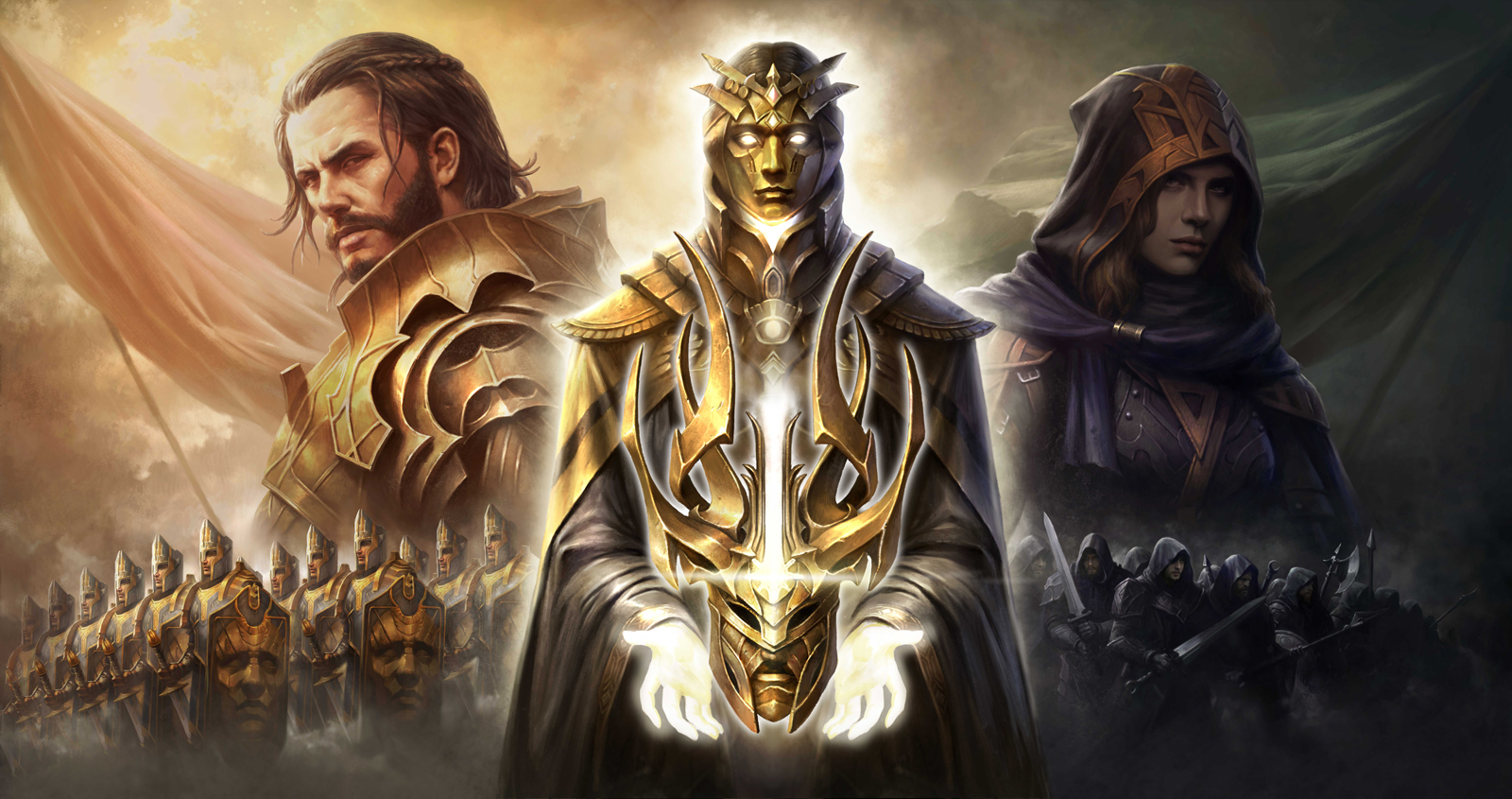
Sign up for breaking news, reviews, opinion, top tech deals, and more.
You are now subscribed
Your newsletter sign-up was successful
We got our hands on the still unreleased Diablo Immortal, the free-to-play mobile version of the classic action RPG, and its hack-and-slash looting gameplay lives up to the franchise. But at the online BlizzCon 2021 earlier this year, Blizzard revealed that the mobile game (developed in partnership with Chinese studio NetEase) has big MMO elements – mostly in its complex faction-vs-faction PvP system, Cycle of Strife. So how does it work?
The player-vs-player mechanics of Diablo Immortal, which is currently in a closed alpha for players in select regions and doesn’t have a release date yet (we asked), are different than how most mobile multiplayer games do PvP. Instead of individual players climbing a leaderboard and focusing on their own reputation, Diablo Immortal’s system is designed to engage the whole playerbase, as the game’s team explained to TechRadar.
“Cycle of Strife was an idea that came to us very, very early in the project. We knew from the beginning that we wanted to have really big social systems in the endgame where people would have to work together in large groups,” Diablo Immortal Senior System Designer Kris Zierhut told Techradar. “One of the best ways for us to do that was to have this deep PvP structure where people have to constantly be organizing and reorganizing themselves and challenging each other.”
The name Cycle of Strife is pretty descriptive: players can choose to engage in miniature seasons of PvP competition between two factions, the elite and privileged Immortals and everyone else clawing to unseat them as Shadows. (Anyone who doesn’t want to participate are Adventurers, who enjoy some Immortals benefits but, once they commit to being a Shadow, they can’t go back.) Each cycle lasts 1-3 months before a new set of players wins their spot as Immortals.
🔮 Join the Shadows⚔️ Raid the Immortals' Vault👑 Take the Eternal CrownBattle to defend your elite position, or prepare to be overthrown. #DiabloImmortal pic.twitter.com/zCXsm9zkh7May 28, 2021
There’s reason to vie for that Immortals top spot: they get access to the highest-level 48-player raid that grants a unique buff and fantastic loot stored in the Immortals Vault. Shadows can sneak into the Vault for surprise raids, and after squabbling for the top slots among themselves, can challenge the Immortals near the end of each Cycle. When the Shadows win, the best of them become the new Immortals, and the Cycle begins anew.
All of which is a very unique PvP system – something akin to European football’s relegation scheme where only the best teams and players get to compete in the top spots while others claw their way up for a chance to displace them. The scale is what could make Diablo Immortal feel like an MMO, with potentially tens of thousands of Shadows players on each server aspiring to claim the top 150-ish Immortals spots.
Player hierarchies are part of the MMO experience, but so is knowing what’s happening. Players will get updates of the big events and upsets detailing the state of the war between Immortals and Shadows, as well as “rumors” hinting at some of the more intriguing events like Vault raids (detailed later), making the entire server aware of the seismic PvP activity that might otherwise slip under the radar. The top Immortal will also get their character semi-immortalized as a statue in the hub city of Westmarch — which stands until their reign violently ends.
Sign up for breaking news, reviews, opinion, top tech deals, and more.
There’s a whole procedure to get the best of the Shadows to challenge the Immortals, which sounds complex even in abstract — and even more incredible that this system is for a mobile game. It’s easy to forget that the last game in the series, Diablo 3 in 2010, didn’t have PvP at all, and Diablo 2 before it only had 1-vs-1 duels. Diablo Immortal and its Cycle of Strife is a big challenge to pull off for the franchise. And given Diablo 4 has no release date in sight, this is the most complex Diablo action we'll see for some time.
“So part of [Cycle of Strife] was that [Diablo Immortal] is an MMO, part of it is we want to have a big social structure, and part of it was some more recent Diablo games didn’t have PvP,” Zierhut said. “This is really the first big PvP system that Diablo has ever had.”
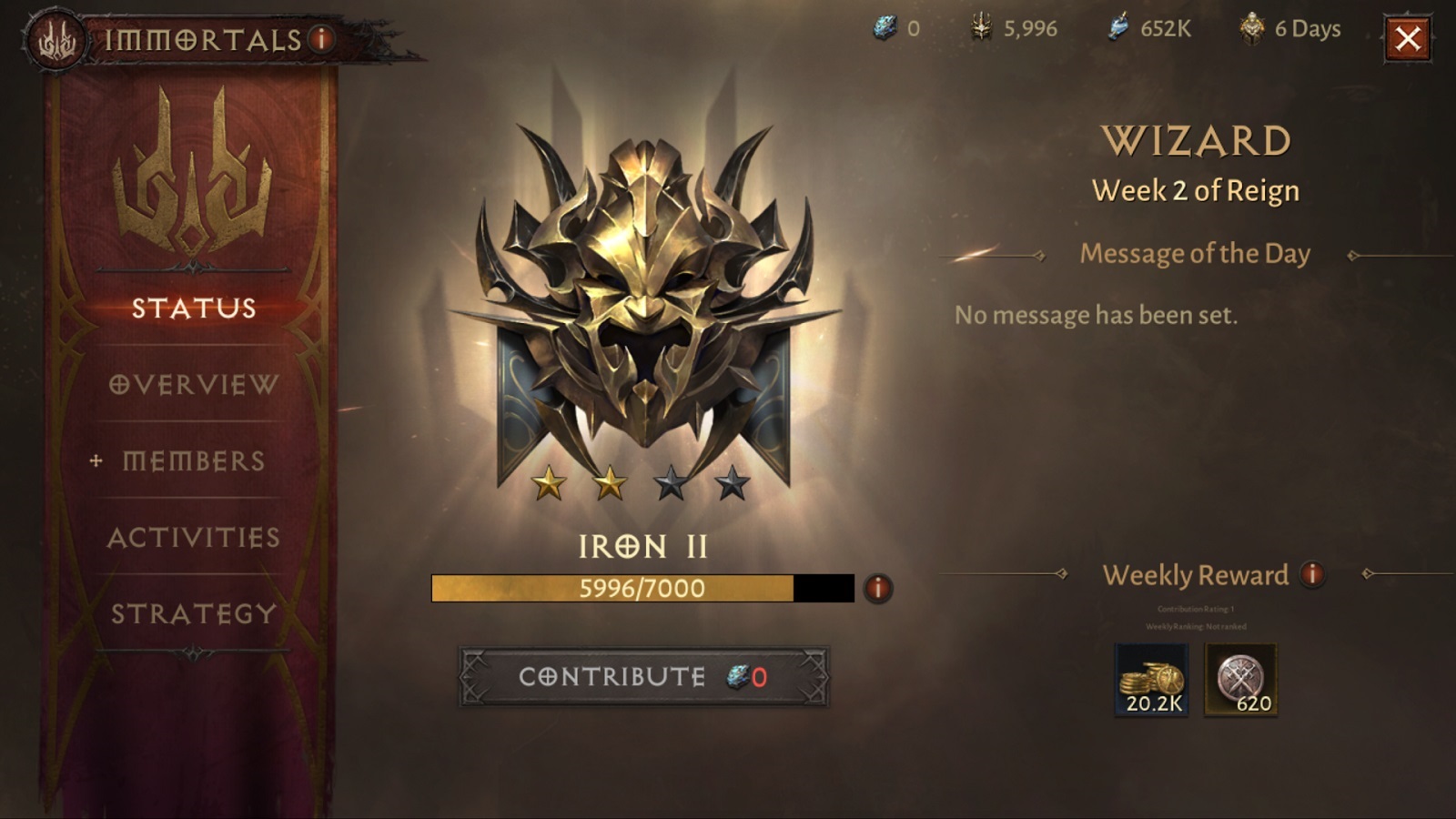
The Immortals: rank has its privileges
The whole Cycle of Strife hinges on players wanting to fight for the top slot – to be Immortals. Blizzard’s lined up a list of perks that high-level players will find appealing, including loot, exclusive raid encounters, and getting their names and likenesses in places of honor visible to everyone in the server. Plus, of course, bragging rights of being on top and the flashy cosmetic items to prove it.
“There’s a thing called the Immortal Cloak, kind of a glowing water-looking cloak that you can run around with in town,” Diablo Immortal Principle Game Desigenr Scott Shicoff said. “One of our players was able to become an immortal and suddenly they noticed they were getting a lot of group invites just standing around in town because people saw that cloak and thought, oh, that’s a powerful player.”
The Diablo Immortals team is still tweaking how many players it will allow to be Immortals – currently, they’re experimenting with between 150 and 500 slots, which is a very low number on a 20,000-player server, Shicoff explained. It’s all about ratio: Shadow players are divided into Houses that are smaller than the number of Immortals, so that when a 100-player Shadow House displaces the Immortals and ends the Cycle, they have 150 slots to fill, giving them room to recruit more Immortals from the base pool of Adventurers.
This isn’t finalized yet, but it gives some idea of how exclusive the Immortals will be. There is a chief Immortal leader who wears the Eternal Crown cosmetic item and gets their own statue in the hub city of Westmarch, as well as the power to nominate up to four players they anoint as Lieutenants, who get their own minor crowns with ally-boosting buffs. The leader, their Lieutenants, and a list of their deeds are recorded in each server’s Wall of Honor in Westmarch.
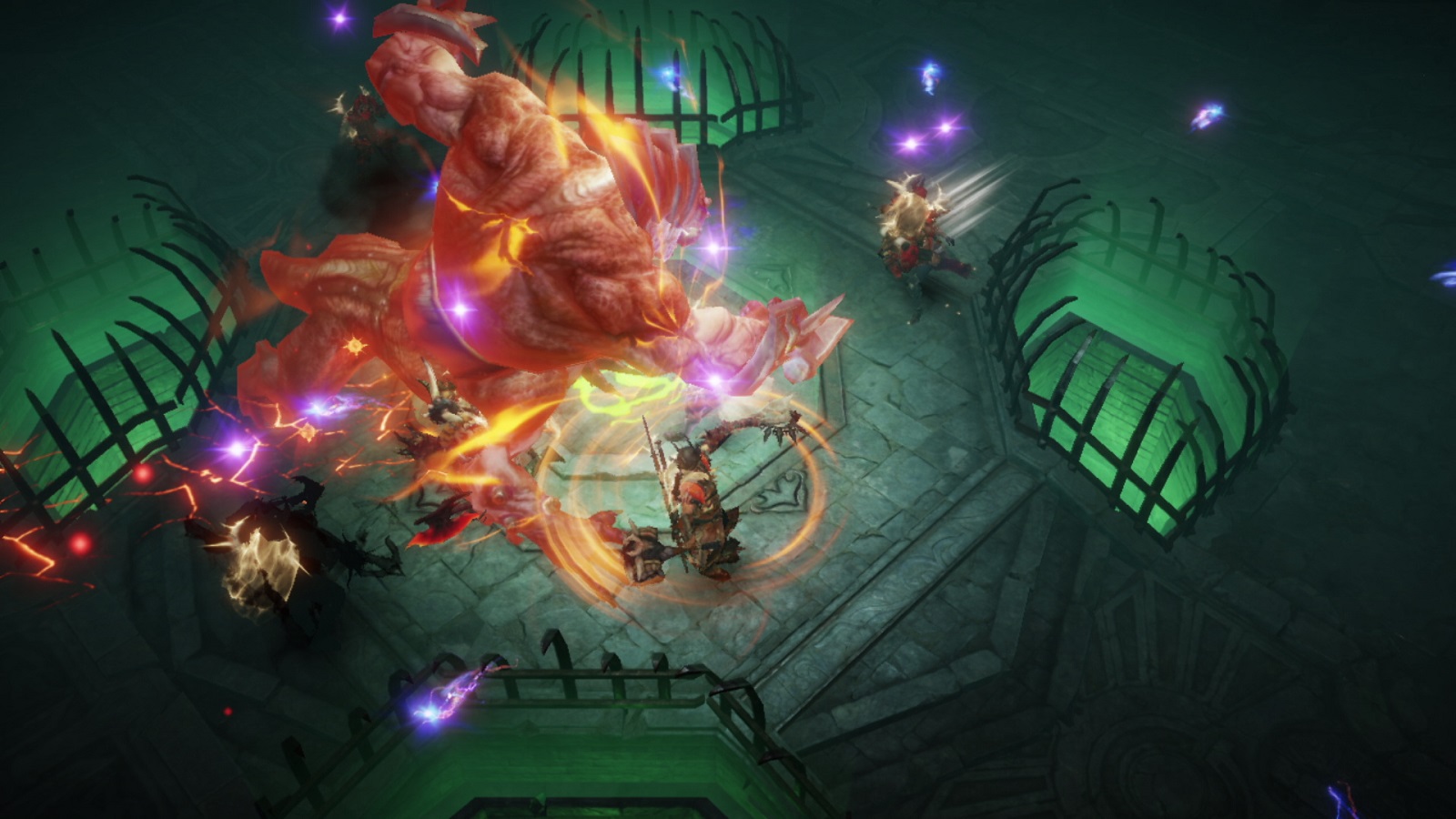
With exclusivity comes privilege, and the biggest one is Kion’s Ordeal, a unique Immortals-only 48-player raid with very specific rules: you must defeat four bosses in 30 minutes, but killing each one empowers the others, requiring careful coordination (which should be no sweat for the most elite players, right?).
Winning grants powerful loot and the Blessing of Daedessa buff for Immortals and Adventurers both, which awards free loot-granting Crests to use in the randomized Elder Rift dungeons; losing the Ordeal grants the buff to the Shadows instead.
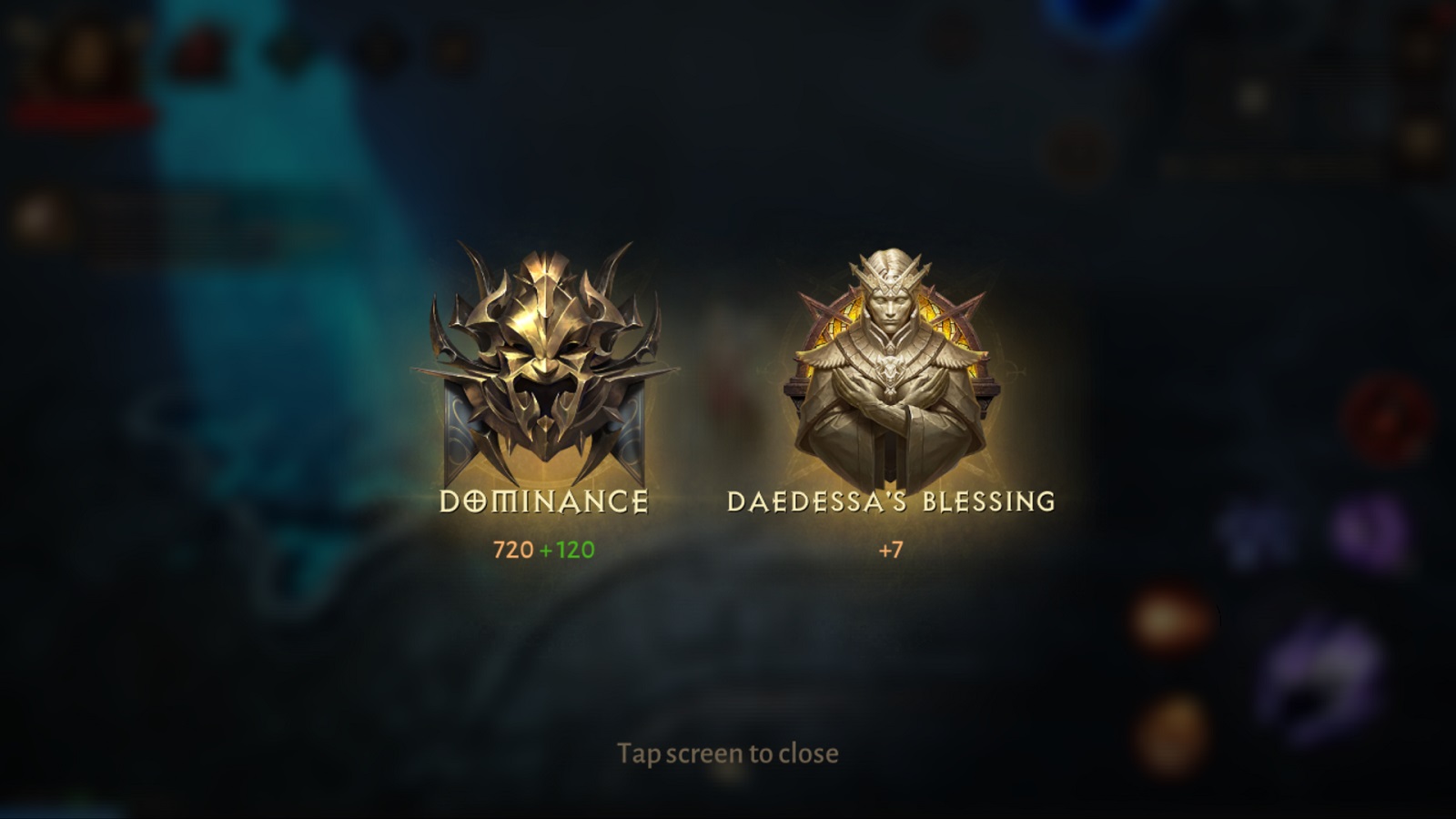
Beating Kion’s Ordeal also gives time-locked loot that goes straight to the Immortals Vault, which the Immortals can call dibs on but must wait a week to access. During that week, of course, Shadows can quietly raid the Vault, giving Immortals extra incentive to crack down on the intruders.
Being an Immortal means responding to Vault raids and challenges, but these can only happen during specific windows of time (currently, 10am to 6pm local time to the server, subject to change). But holding on to the top slot is an increasingly challenging affair, as the Diablo Immortals team skews the odds more in the Shadows’ favor as time goes on to encourage a Cycle to end with the currently reigning Immortals falling to challengers.
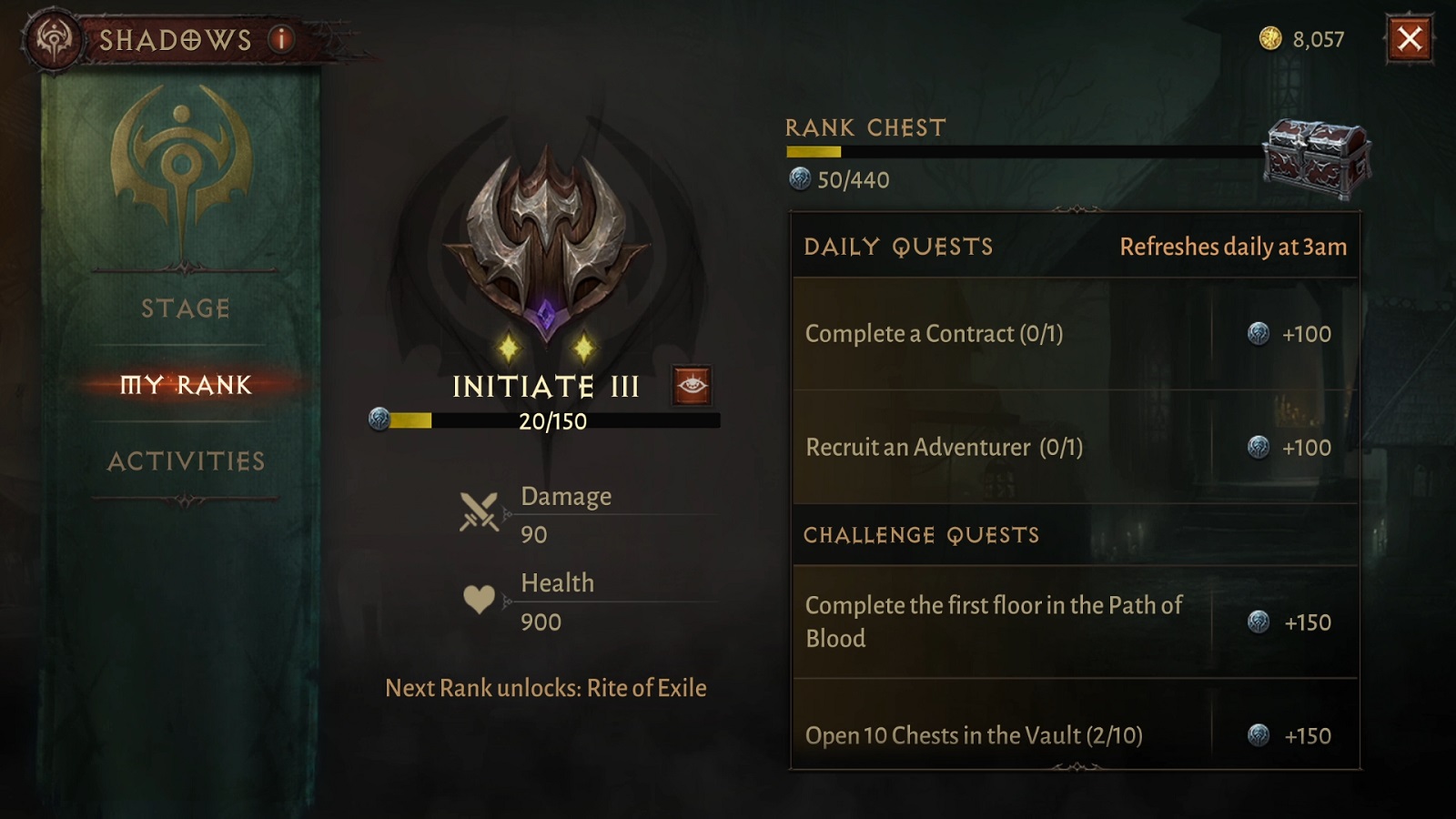
The Shadows: Houses of players clawing to the top
When a new Cycle begins – think of them like PvP seasons – every player who’s not one of the newly-crowned Immortals defaults to an Adventurer. Players can choose not to participate in the Cycle and enjoy passive buffs should the Immortals win Kion’s Ordeal – or they can become Shadows and get access to PvP and PvE encounters specific to the Cycle.
The most common of those will be the aforementioned Raid on the Immortals Vault, which sees Shadows start creeping into the titular Vault – a dungeon stuffed with treasure-guarding monsters that get stronger the deeper Shadows delve. Of course, there’s better loot in the lower levels, so Shadows will have to weigh the risks, especially since the longer they spend in the Vault the more likely that the Immortals will be alerted and teleport in to break up the party.
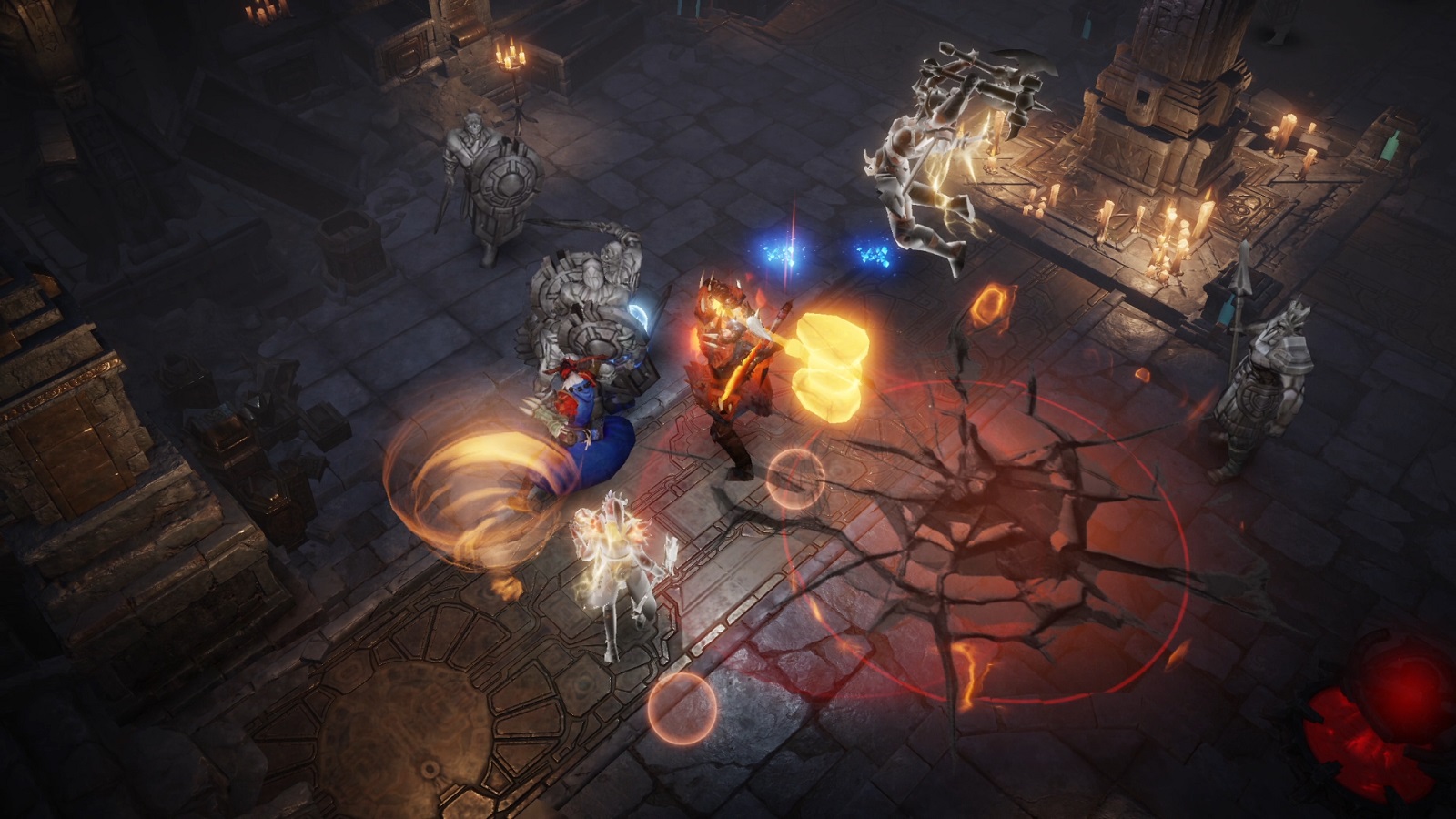
Shadows have a secondary objective, too – collecting a resource called Essential that enables Immortals to run their Kion’s Ordeal raids, without which the Blessing of Daedessa automatically goes to the Shadows.
Shadows are divided into Dark Houses, which function a bit like competitive guilds. They vie among each other to be ranked the highest, because toward the end of the Cycle, only the top ten Houses get to challenge the Immortals in a showdown called the Rite of Exile.
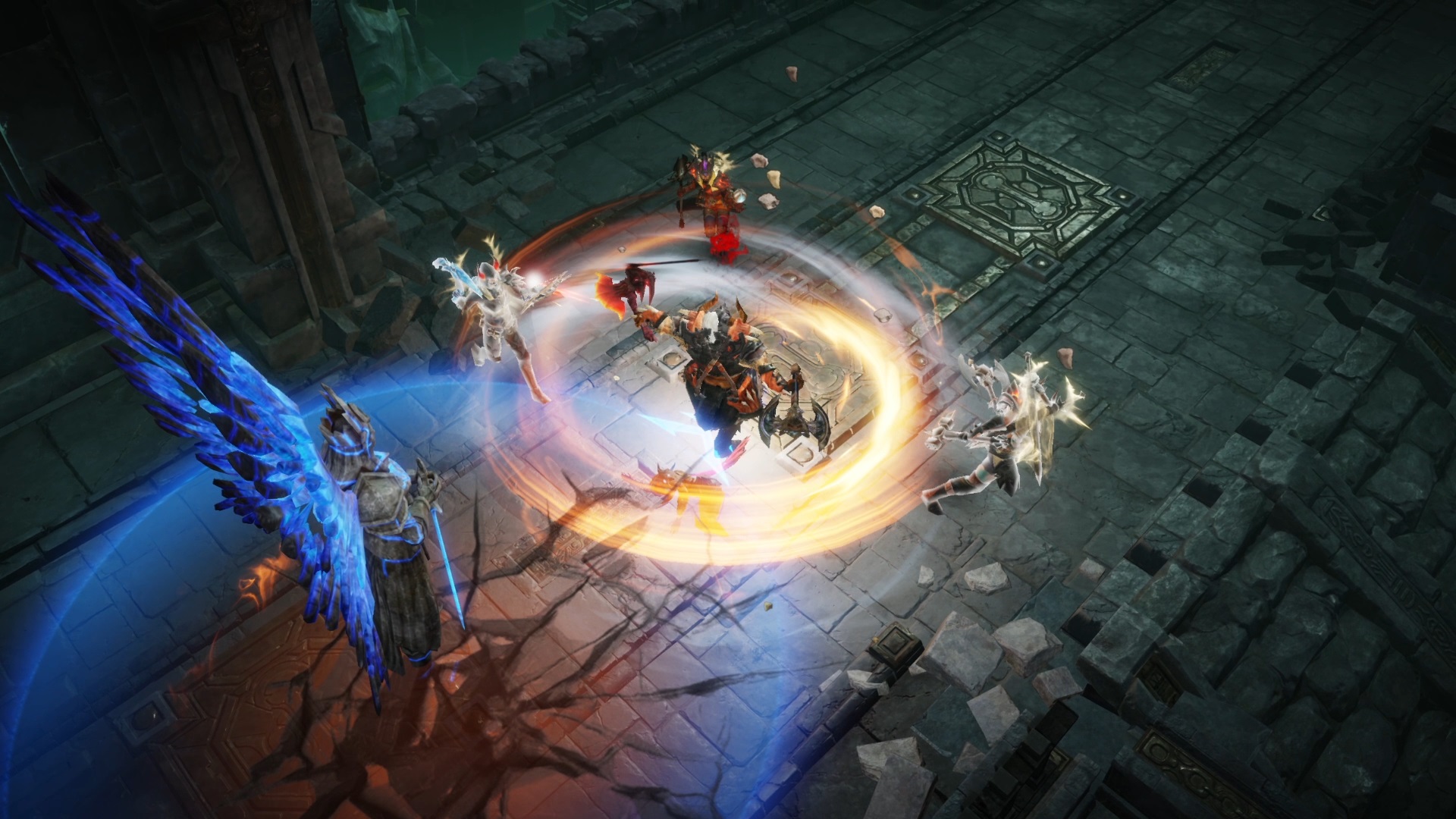
Part griefing and part old-school heated competitive gaming, Cycle of Strife keeps the Shadows hungry and feuding for the chance to unseat the top players. To raise their House’s rank, they can engage themed quests called Contracts; to qualify for the Rite of Exile, Shadows engage in tough solo encounters against monsters in sequences called The Path of Blood.
For the Rite of Exile, each of the top ten Houses sends their best players to fight in 8v8 multi-stage battles against opposing Immortals squads; if the Shadows win half or more of the challenges, the Immortals are overthrown and the top House succeeds them.
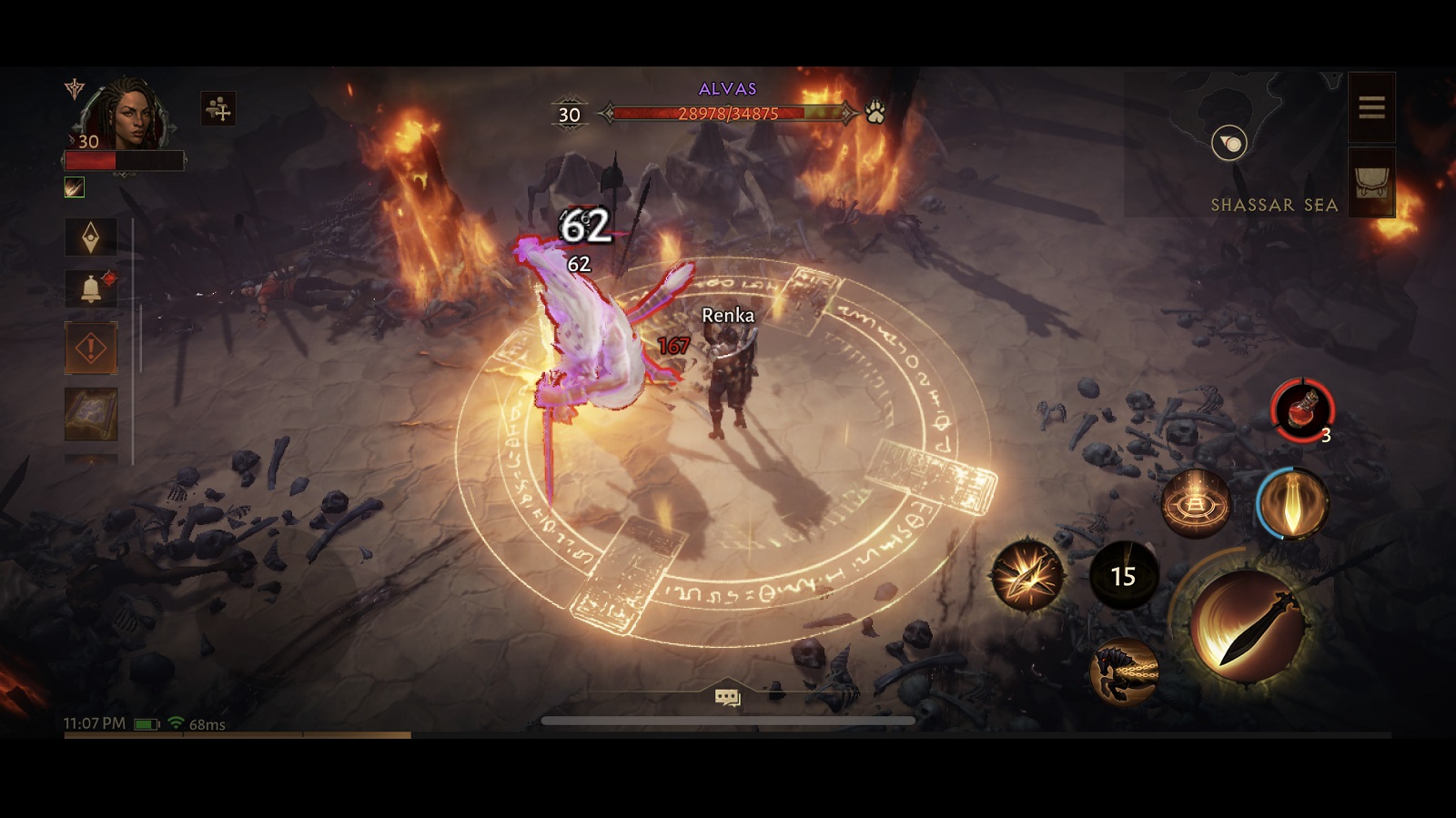
PvP basics: how Diablo Immortal’s cool classes and weapons are balanced
Like any game combining player-versus-environment (PvE) and PvP, Diablo Immortal has to walk a careful line when introducing new items and skills so that they don’t unbalance either kind of interaction. Much like Bungie’s Destiny, a novel aspect of Diablo Immortal is being able to use the same gear against both computer-controlled monsters and other players.
That’s tricky given the wide combinations of skills and legendary items, which can dramatically modify how those skills work. As is typical for online PvP games, the Diablo Immortals team will respond to how players use those skills, tweaking those that get too dominant and making sure all builds of equipment, skills, and gear-modifying gems are roughly equal in power. (And yes, this includes immediate emergency nerfs for things that one-shot kill players, Shicoff said.)
“Overall, our goal is that you can use any skill you want in any combination, and on top of that, we want to make sure that when you use your skills in PvP they work the same as in PvE,” Zierhut said.
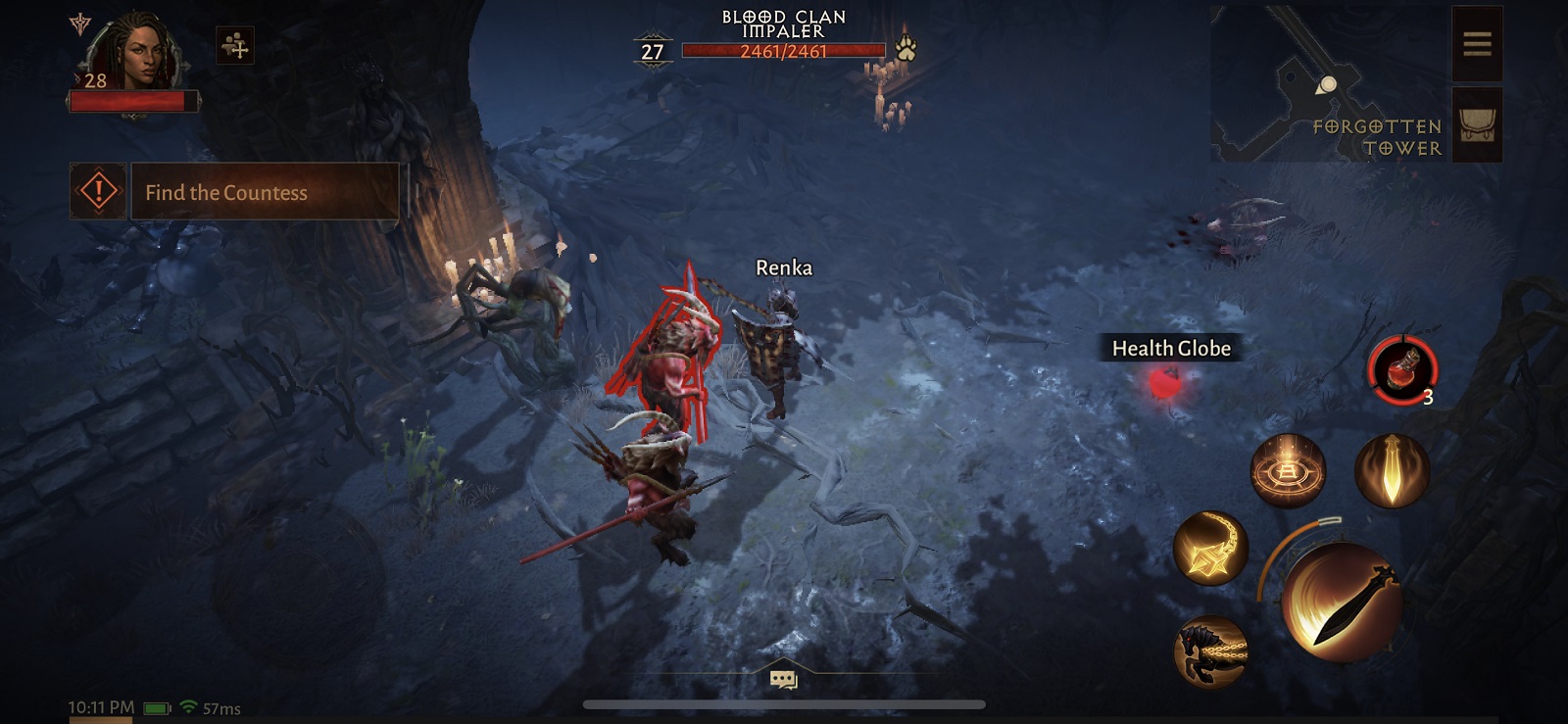
There’s exceptions, of course, like global PvP rules for certain conditions – Zierhut used crowd control as an example of something that could immobilize monsters for 4-6 seconds, but that’s an eternity for players. The global rule might shorten that to 2 seconds in PvP, with successive effects adding one second per, but it applies to all crowd control skill effects. Or they’ll tweak a certain legendary item if its effects are too strong.
Likewise, the team emphasized the importance that each class would be viable in PvP. As Shicoff summarized: “Play the class you want to play, have fun, play with your friends, and be able to participate.”
As a living game (Shicoff’s words), Diablo Immortal will keep changing Cycle of Strife as more content is added and new items require some rebalancing. But they’ll also consider what the overarching PvP system is missing, which is part of the point of the closed alphas – the team needs a host of players to test the system in the real world and give a volume of feedback.
Blizzard hasn’t announced when Diablo Immortal’s tests will roll out to other regions nor when the game will be announced, but players have a lot waiting for them when the free-to-play mobile version of the classic franchise arrives in their corner of the world – with the biggest Diablo PvP experience ever.
- Stay on top of tech news with the TechRadar newsletter

David is now a mobile reporter at Cnet. Formerly Mobile Editor, US for TechRadar, he covered phones, tablets, and wearables. He still thinks the iPhone 4 is the best-looking smartphone ever made. He's most interested in technology, gaming and culture – and where they overlap and change our lives. His current beat explores how our on-the-go existence is affected by new gadgets, carrier coverage expansions, and corporate strategy shifts.